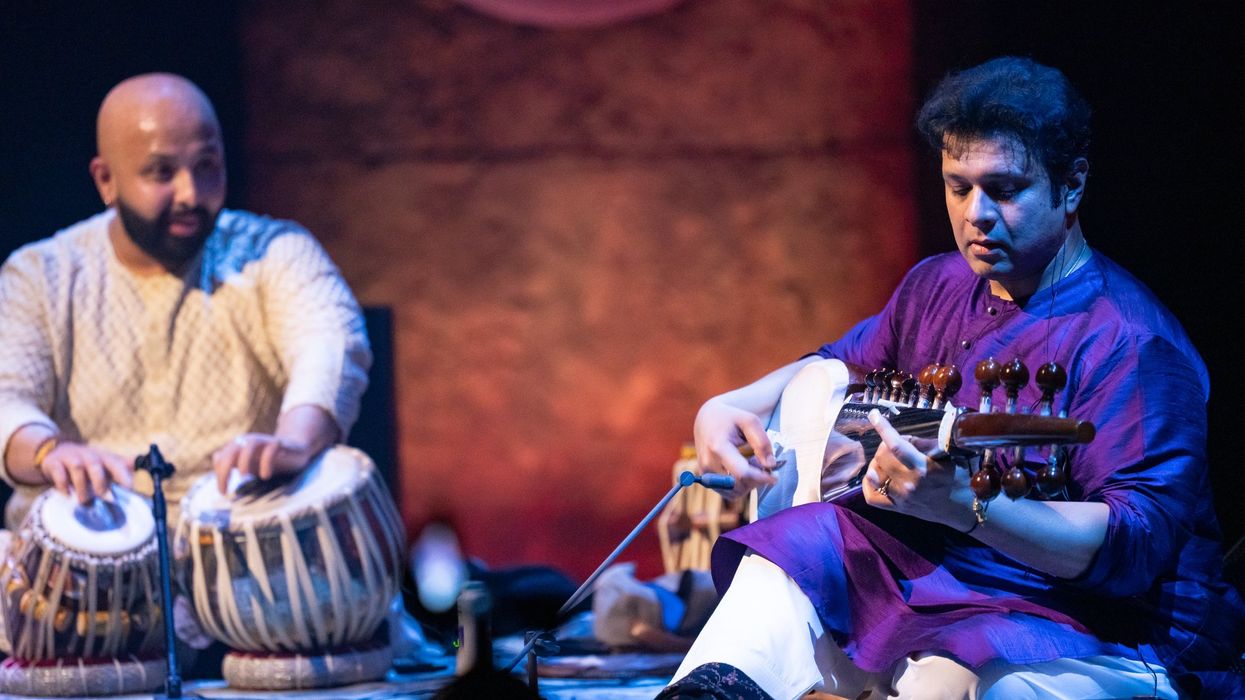THE annual Darbar festival gives Indian classical music fans a feast of fabulous live performances. This dynamic double bill at Barbican Hall in London perhaps summed up everything that makes it such an important, vibrant and entertaining date in the calendar every year.
Sarod maestro Amaan Ali Bangash, often seen on stage with his talented brother Ayaan Ali Bangash and legendary father Ustad Amjad Ali Khan, showed that he is a formidable solo performer. He began the show by playing an impressive repertoire of music that encompassed different moods and emotions. By enabling him to make his UK solo debut, Darbar gave a platform to an artist who will keep alive his impressive musical lineage, which has stretched for seven generations, for decades to come. Anubrata Chatterjee, accompanying on tabla, gave an already energetic performance added power with his mastery on stage.
In the second half, legendary musician Dr L Subramaniam teamed up with his son Ambi Subramaniam for a world-class violin concert. Both showed absolute brilliance on the much-loved instrument, as they glided through different genres and styles with effortless ease. Accompanied by wonderful musicians, the duo used the violin to show how music can be a unifying force.
The performances, rooted in ancient tradition, not only united different generations, but also crossed cultures, as they enthralled a packed audience from diverse backgrounds. The stage was also filled with musicians at different stages of their respective journeys, ranging from current stars to future icons.
All this perhaps sums up what Darbar is about. Those who missed the stunning series of concerts, including this one, can watch the performances on Sky Arts later this year. They are timeless and brilliant, like this near-perfect double bill, which took audiences on a memorable journey.




